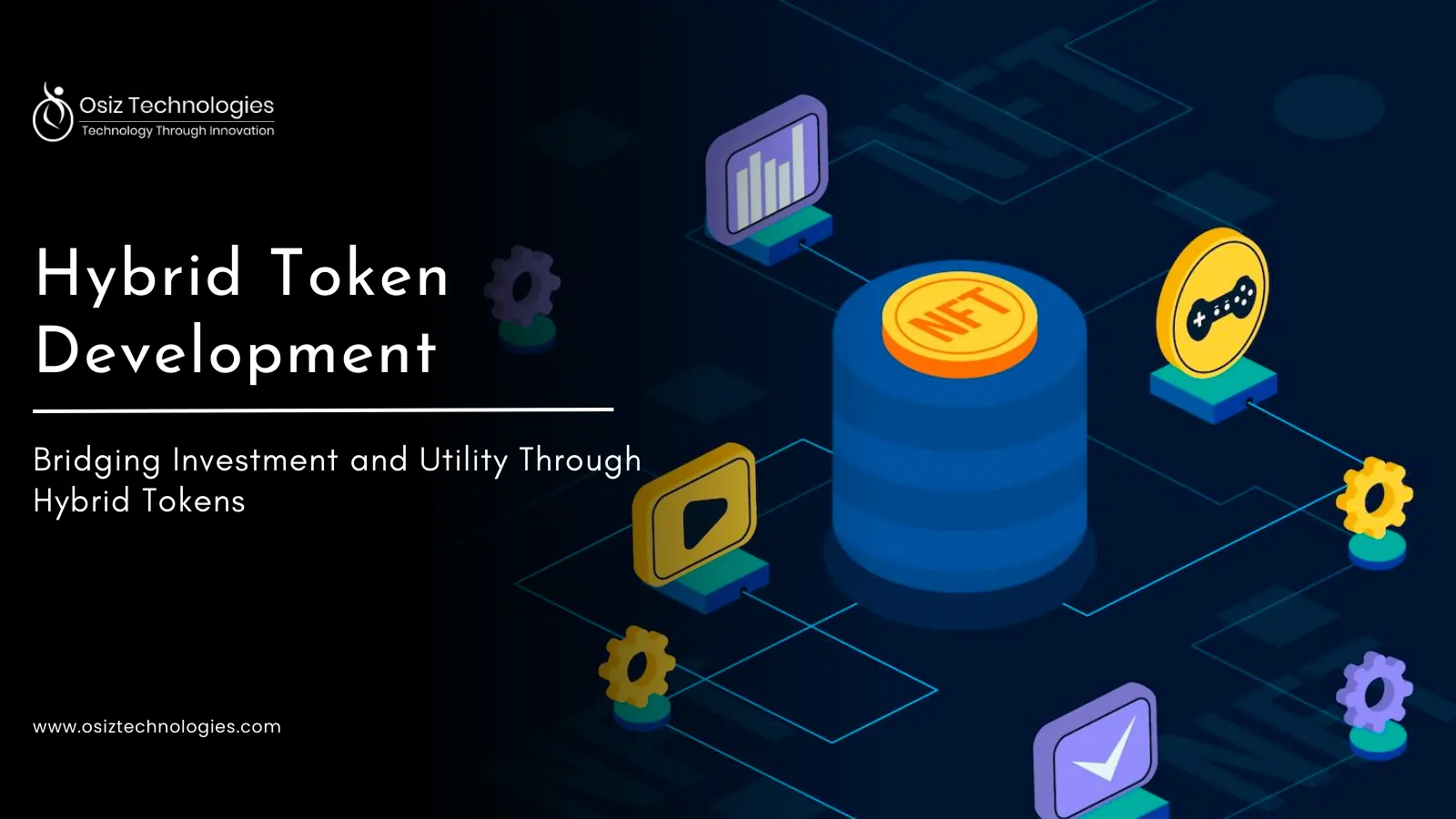Listen To The Article

Founder & CEO Osiz Technologies
Mr. Thangapandi, the CEO of Osiz, has a proven track record of conceptualizing and architecting 100+ user-centric and scalable solutions for startups and enterprises. He brings a deep understanding of both technical and user experience aspects. The CEO, being an early adopter of new technology, said, \"I believe in the transformative power of AI to revolutionize industries and improve lives. My goal is to integrate AI in ways that not only enhance operational efficiency but also drive sustainable development and innovation.\" Proving his commitment, Mr. Thangapandi has built a dedicated team of AI experts proficient in coming up with innovative AI solutions and have successfully completed several AI projects across diverse sectors.
Recent Blogs
your vision to life!

Share your idea and our team will reach out to discuss it and provide you with an estimate.
Your data is kept confidential and your privacy is our highest priority.


No 22,Astalakshmi Nagar, Thanakankullam, (Opp Seetha lakshmi Mill gate Bus stop) Thirunagar, Madurai - 625 006.
(Corporate Office)


10466 Shire View Dr, Frisco, Texas 75035, United States of America USA.
(Sales Office)


Canada Office address, 1150, Rue Patrick, Laval, Quebec - H7Y 2C4, Canada.
(Sales Office)
Services

Let's quickly bond.
Let's quickly bond.
- Explore AI
- Intelligence OS for Medical Imaging
- Intelligence OS for Diagnostic Systems
- Intelligence OS for Control Systems
- Intelligence OS for Dialog Systems
- Intelligence OS for Health Management Systems
- Intelligence OS for Chat-bots
- Intelligence OS for Crypto API
- Intelligence OS for Educational Assistant
- Intelligence OS for Deep Fake Detection
- Intelligence OS for Autocomplete in Search Engines
- Intelligence OS for CCTV to AI Camera
- Intelligence OS for Object Detection
- Intelligence OS for Voice AssistantsIntelligence OS for Language
- Intelligence OS for Autonomous Vehicles
- Intelligence OS for KYT
- Intelligence OS for Recommendation System
- Intelligence OS for Prediction System
- Intelligence OS for Finance
- Intelligence Fourier Transform Analysis
- AI Arbitrage Bot
- Intelligence OS for Multi-Lingual Assistant
- Intelligence OS for Fraud Detection
- Intelligence OS for Advanced Healthcare
- Artificial Intelligence
- AI Development
- AI as a Service
- Data and Analytics Services
- Machine Learning Development
- Enterprise AI Solution
- AI Consutling Services
- AI Integration Services
- AI Agent Development
- AI Assistant Development
- Hire AI Engineers
- Hire Prompt Engineers
- Hire Chatgpt Developers
- Hire Stable Diffusion Developers
- Hire Action Transformer Developers
- AI Chatbot Development
- Transformer Model Development
- AI Co-Pilot Development
- Adaptive AI Development
- Chatgpt Development
- Large Language Model Development
- NLP
- AI Brainstorming
- AI Consulting and Idealogy Development
Blockchain- Blockchain Development
- Smart Contract Development
- Custom Blockchain Development
- Solana Blockchain Development
- Polygon Blockchain Development
- Public Blockchain Development
- DAO Blockchain Development
- Binance Smart Chain (BSC) Blockchain Development
- DApp Development
- Solana DApp Development
- White Label Blockchain Solutions
- Custom Blockchain On Avalanche
- Custom Blockchain On Polygon
- Blockchain Game Development
- Blockchain Consulting Services
- Blockchain Explorer Development
- Proof Of Reserve
Layer 1 & 2 Solutions- Layer-1 Blockchain Development
- Cross Chain Bridge Development
- Data Availability Layer Development
- Ethereum Layer 2 Scaling Solutions
- Cross-L2 DEX Solution
- Layer 2 Token Development
- Layer 2 Token Marketing
- Layer 2 Cryptocurrency Development
- Layer 2 Solutions For Blockchain Games
- Layer 2 Solutions For Web3 Gaming
- Layer 2 Blockchain Solutions
- Rollups As A Service
- Optimistic Rollups Development
- ZK Tech Development
- Bitcoin Layer 2 Solutions
CryptoCrypto Exchange- Cryptocurrency Exchange Development
- White Label Crypto Exchange
- Decentralized Exchange Development
- P2P Exchange Development
- Crypto Derivatives Exchange Development
- Centralized Exchange Development
- Crypto Exchange Clone Script
- Cryptocurrency Exchange App Development
- OTC Exchange Development
- Exchange Listing Services
- Binance Like Exchange Development
- Bitstamp Like Exchange Development
- Crypto Exchange Script
Crypto WalletToken Standards- Token Development
- AI Token Development
- Asset Tokenization
- Real Estate Tokenization
- Tokenization Platform Development
- Crypto ETF Development
- Solona Token Development
- Semi-Fungible Token Development
- BEP20 Token Development
- Ethereum Token Development
- ERC1400 Token Development
- ERC998 Token Development
- ERC 721 Token Development
- ERC20 Token Development
- Defi Token Development
- ERC1155 Token Development
- BEP721 Token Development
- Utility Token Development
- ERC 777 Token Development
- ERC 827 Token Development
- Social Token Development
- Metaverse Token Development
- Tron Token Development
- ERC404 Token Development
- Governance Token
- Shibarium Token
- polygon Token
- BRC-20
- TRC20 Token Development
- TRC10 Token Development
- Soulbound Token Development
- NFT Token Development
Trading BotsClone- Crypto Exchange Clone Script
- Binance Clone Script
- Coinbase Clone Script
- Kucoin Clone Script
- Paxful Clone Script
- Remitano Clone Script
- Wazirx Clone Script
- ByBit Clone Script
- Bitfinex Clone Script
- MEXC Clone Script
- Bitget Clone Script
- Cointool App Clone Script
- Trust Wallet Clone App
- Coinmarketcap Clone Script
- Changelly Clone Script
- BingX Clone Script
CybersecurityApp SecurityDigital Forensics & Incident ResponseAudit & ConsultingEducation & TrainingSolutionsWeb 3DeFi- Decentralized Finance (DeFi) Development
- DeFi Lending/ Borrowing Platform Development
- DeFi Staking Platform Development
- DeFi Token Development
- DeFi Wallet Development
- DeFi Smart Contract Development
- DeFi DApp Development
- Decentralized Exchange Development
- DeFi Insurance Development
- DeFi Crypto Synthetic Assets Development
Game Development- Game Development
- Android Game Development
- IOS Game Development
- Metaverse Game Development
- VR Game Development
- AI Game Development
- Unity 3D Game Development
- Unreal Engine Game Development
- Mobile Game Development
- Blockchain Game Development
- NFT Game Development
- Play to Earn Game Development
- Move to Earn Game Development
- Casino Game Development
- Slot Game Development
- Poker Game Development
- AAA Game Development
- AR Game Development
- Social Network Game Development
- Gamification Services
- Decentralized Sports Betting Platform
- Sports Betting Dapp Development
- Blockchain Casino Game Development
- Game Asset Creation
- Baccarat Game Development
- Rollbit Clone Script
- Fortnite Clone Script
- Slot Game Development
- Tap to Earn Game Development
- Slot Game Development
Metaverse Platforms- Metaverse Game Development
- Metaverse Event Platform Development
- Metaverse Virtual Mall Development
- Metaverse NFT Marketplace Development
- Metaverse Token Development
- Metaverse Virtual Land Development
- Metaverse Avatar Development
- Metaverse 3d Space Development
- Metaverse Real Estate Development
- Metaverse Social Media Platform Development
- Top 10 Metaverse Development Company
- Metaverse Business Ideas
- Metaverse Launchpad Development
- Metaverse App Development
- Metaverse Casino Game Development
NFT SolutionsNFT Platforms- NFT Minting Development
- NFT Exchange Platform Development
- NFT Launchpad Development
- NFT Fashion Marketplace Development
- NFT Art Marketplace Development
- NFT Music Marketplace Development
- Carbon Credits NFT Marketplace Development
- Binance NFT Marketplace Development
- Polygon NFT Marketplace Development
- Solana NFT Marketplace Development
- Influencers NFT Marketplace Development
- NFT Ticketing Marketplace Development
- DeFi NFT Marketplace Development
- NFT Fantasy Sports Platform Development
- NFT Storage Development
- NFT Lending Platform Development
- Top10 NFT Business Ideas
NFT Game ClonesSustainabilityServiceNow - Digital Transformation in Real Estate
- Digital Transformation in education
- Digital Transformation in Healthcare
- Digital Transformation in Retail
- Digital Transformation in Supply Chain
- Digital Transformation in Banking
- Digital Transformation in Travel and Tourism
- Digital Transformation in Insurance
- Digital Transformation in Finance
- Digital Transformation in Ecommerce
- Digital Transformation in Telecommunication
- Digital Transformation in Aviation
- Digital Transformation in Advertising
- Digital Transformation in Energy (Oil, Gas)
- Digital Transformation in Automotive
- Digital Transformation in Logistics
- Digital Transformation in Government
- Digital Transformation in Fintech
- Digital Transformation in Media
- Digital Transformation in Manufacturing
- Blog
- Contact Us
- Works
- Dataset


